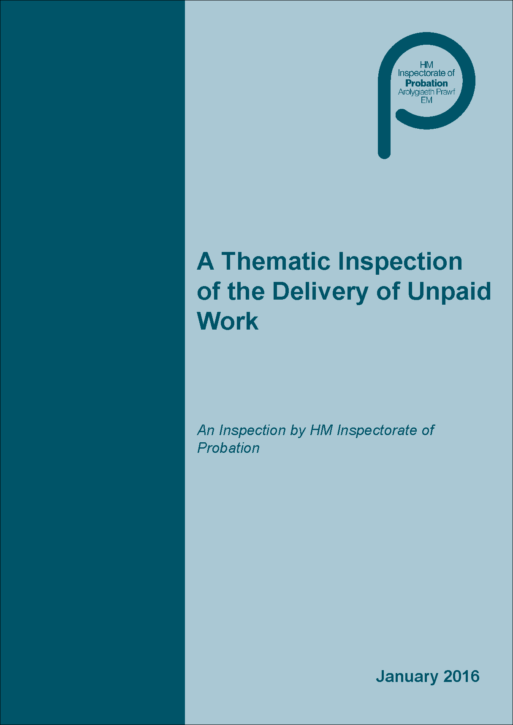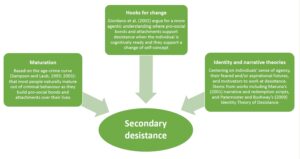Unpaid work
Last week’s (11 January 2016) Probation Inspectors’ “Thematic inspection of the delivery of unpaid work” is a good barometer to the performance of the new private providers of probation services known as Community Rehabilitation Companies (CRCs). The fieldwork for the inspection was carried out in June and July 2015 in six CRC areas with inspectors visiting London, Swansea, Birmingham, Liverpool, Newcastle and Bristol. It should be noted that this is only 5-6 months after CRCs started operating on 1 February 2015.
Unpaid work (previously known as “community service”, “community punishment” and “community payback”) is the most frequently imposed requirement of a community sentence with 70,171 orders made in 2014 — more than half of all community sentences. Indeed, unpaid work was the only requirement of the order in 36,578 cases, meaning that unpaid work was the only intervention the offender received in over one-quarter of all community sentences.
Findings
Overall, inspectors found no detailed dominant model for the delivery of unpaid work. Arrangements in each area had evolved to suit local circumstances. Despite this, the framework for delivery was broadly similar in five of the six areas. Inspectors judged that the overall quality of the delivery of unpaid work also varied significantly between these areas.
The inspectors’ main findings were:
- Most cases were allocated quickly and correctly but the quality of inductions varied and was sometimes poor.
- While two thirds of the inspectors’ sample had their first work appointment arranged within two weeks of sentence, nearly one fifth had not been arranged in the first three weeks “an unacceptably high level of cases where the work does not commence promptly enough.”
- Only 21% of the plans we saw were tailored to the individual circumstances of the offender and met our minimum standard. It appeared that the completion of the plan is largely an administrative process rather than one to assist in achieving the broader objectives of the sentence.
- There was work of a very high standard being done on some sites in most areas. Where high quality tools and equipment were used, offenders were more likely to say that they had learned new skills and take pride in the work they were required to do.
- Overall, the types of work being undertaken seemed appropriate, and offenders were correctly credited with the hours that they were under supervision.
- Inspectors were disappointed with the standard of integration of unpaid work within offender management. Although supervisors usually ensured a significant opportunity to engage positively with the offender, there was very little consideration by offender managers of how unpaid work could contribute to the broader aims of probation intervention, most notably that of desistance.
- Non-compliance was dealt with poorly: “in too many cases, there was insufficient evidence to justify the decision that an absence was acceptable. In other cases, a judgement had simply not been made, the judgement was incorrect or no action had been taken.”
Interestingly, inspectors concluded that:
The responses of the offenders we interviewed were the most encouraging aspect of the inspection.
Despite some difficulties with ‘stand downs’ and problems with appropriate tools, most reported that they had a good relationship with their supervisor and that they considered the work they were doing was worthwhile. Many had learned new skills or gained confidence that they thought would help them move into training or work.
Despite the fact that few offender managers had discussed how unpaid work could assist them in leading better lives, a significant proportion of offenders were determined to view their sentence positively and desist from future offending.
[divider]
Conclusion
Unpaid work has always been the Cinderella department of probation work – doing valuable work but under-valued and rarely fully integrated into the mainstream of offender management. It appears that the changes brought in by Transforming Rehabilitation are reinforcing this trend.
It will be interesting to see how unpaid work develops once the new providers have introduced their own models of working.
For further information on TR, check out my free resource pack.









